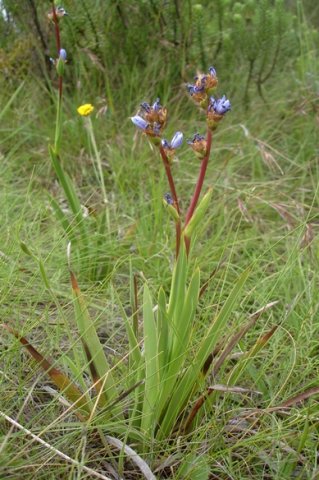Aristea torulosa

Author: Ivan Lätti
Photographer: Judd Kirkel Welwitch
Aristea torulosa, the common grass aristea and in Afrikaans the blousuurkanol (blue sour bulb), a name shared with other aristeas including A. capitata, is a perennial evergreen growing from a rhizome, reaching 80 cm in height. It used to be known scientifically as A. woodii.
The narrow, fibrous leaves without midribs grow basally in a fan-shape, tapering abruptly to acutely pointed tips.
The species distribution is in the east of South Africa, from the Eastern Cape, KwaZulu-Natal and the Free State to Mpumalanga, Gauteng and Limpopo; also found in some neighbouring countries. The photo was taken near the Sani Pass.
The habitat is grassland from the coast to elevations around 2500 m, sometimes on rocky ridges and marshy places. The habitat population is deemed of least concern early in the twenty first century (Manning, 2009; Pooley, 1998; Van Wyk and Malan, 1997; iNaturalist; http://redlist.sanbi.org).

